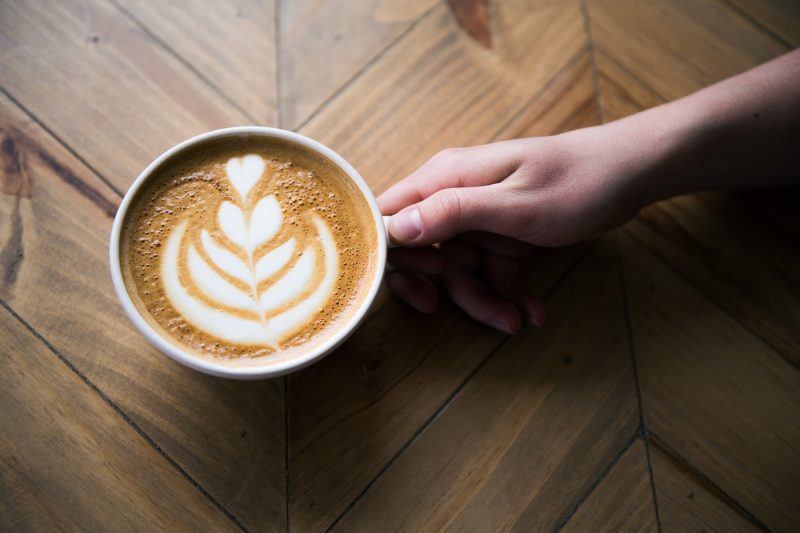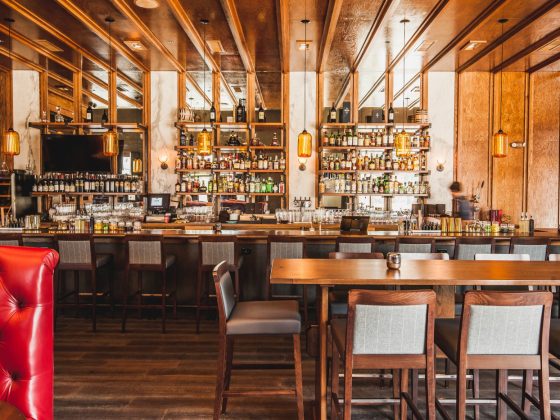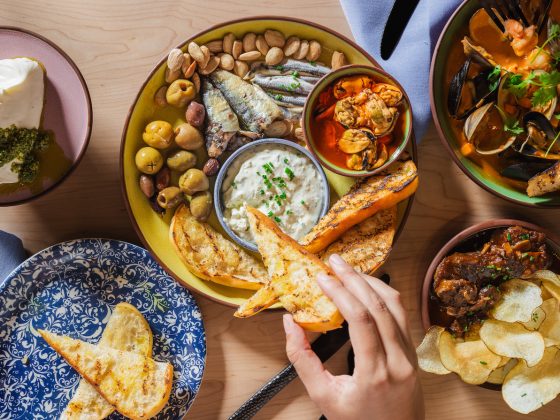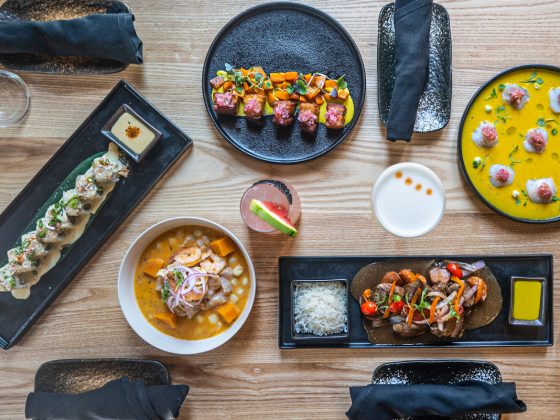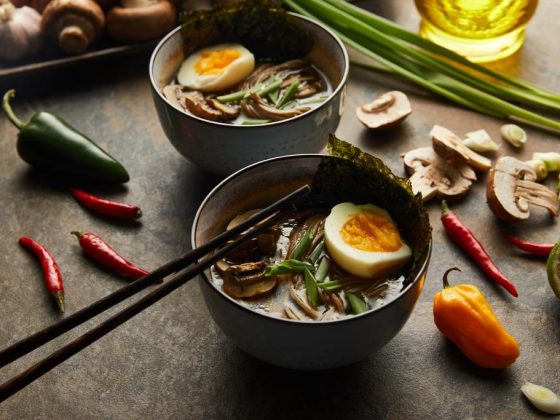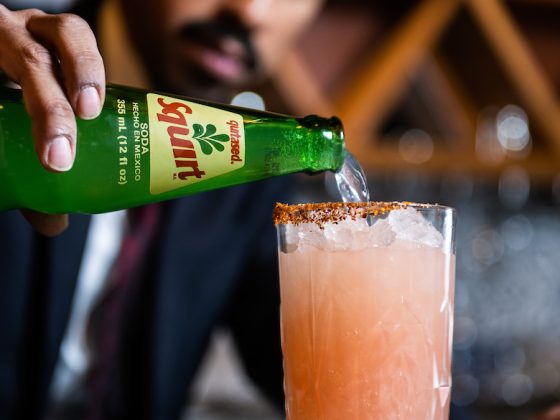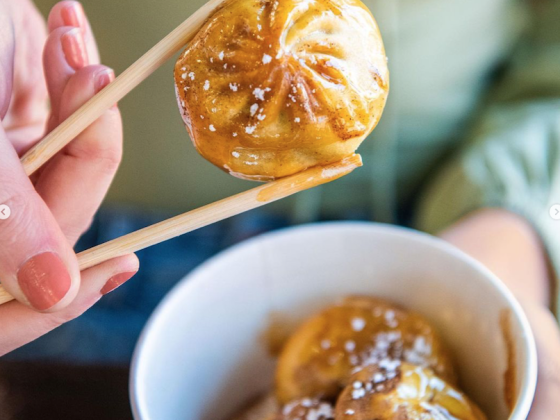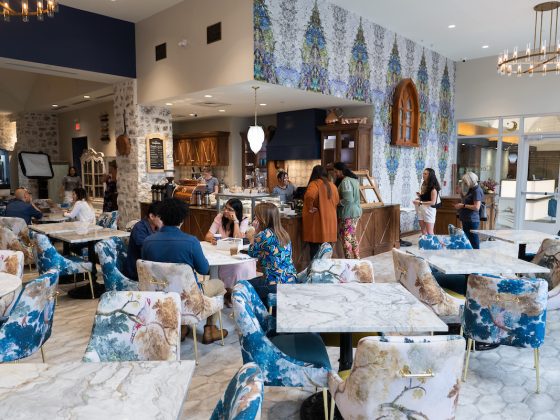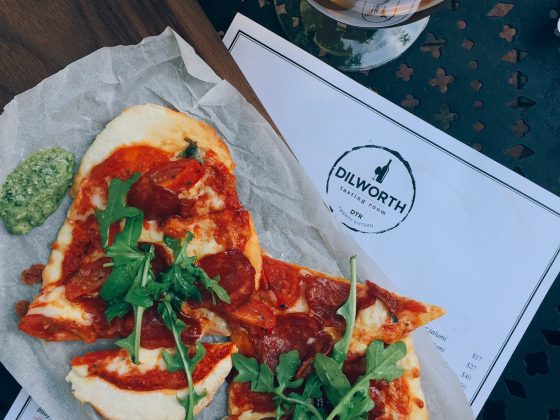It’s pronounced “base-al.” It’s kind of all right there in the name: Headed up by husband and wife duo Bryce and Andrea Laguer, Basal Coffee Charlotte NC is an endeavor concerned with foundations. Adjoined to LaCa Projects in Wesley Heights, the coffee shop serves single-origin coffee and sustainably sourced food, but with attention to those details of the coffee industry most Americans overlook—namely, where it comes from, and what our consumption means for those places of origin. Bryce and Andrea are interested not only in good coffee, but also what role they play in sourcing, grinding, and pouring it.
In other words, this ain’t your average spot for a coffee run. Everything being served has been selected and prepared responsibly. Basal’s been open for a just a few months, and things are only going to get even more sustainable. The establishment’s origin-conscious business model, Bryce says, will inform everything they do, from their new beer and wine program to their composting and planting efforts with Honey Tree Homestead at North Corner Haven.
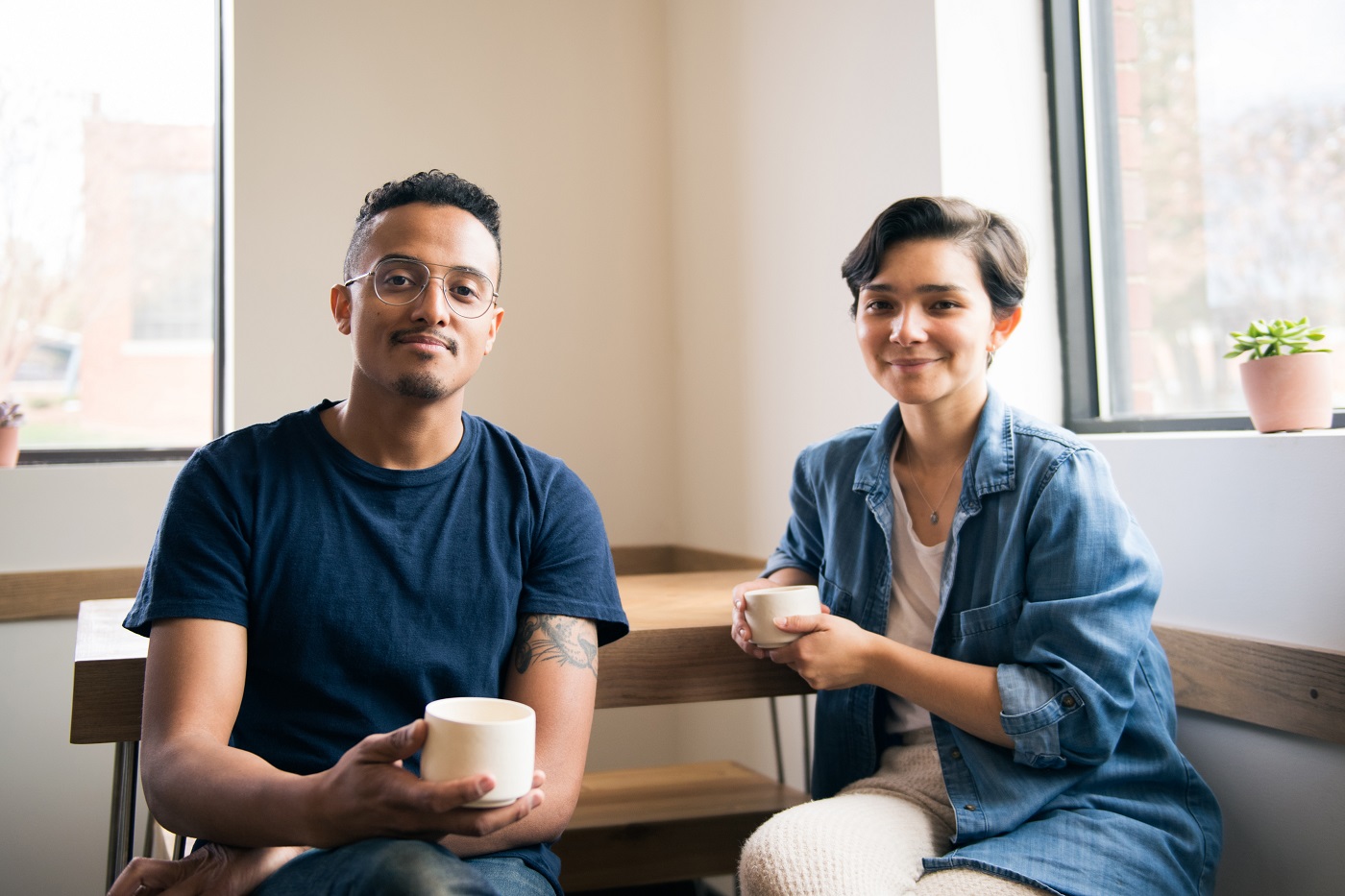
Bryce Laguer is a busy man with a lot of things brewing. We couldn’t cover it all, but I managed to sit down with him briefly to talk about some of what Basal is and what it’s going to be.
We’re sitting in a coffee shop adjoined to a Latin American art gallery. Why is Basal here—aside from the fact that coffee is kinda just Latin American art in a mug?
Well, coffee is Latin American art in a mug. When we met the people behind LaCa Projects [Latin American Contemporary Art], they pulled at my heartstrings. Simple as that. They’re the biggest gallery in the Southeast for Latin American art. There’s a story next door to us that’s related to ours. Also, Charlotte’s west side doesn’t really have a good middle-ground closer to the city, and we want to be that. A brewery’s fine, a bar’s fine, but sometimes people want to be sober. There’s no one over here right now who’s doing what we’re doing.
Where are you and Andrea from originally?
Andrea is from Colombia. My father comes from a French father and a Mexican mother. My mother is Nigerian. My children just call themselves Colombian because it’s easier.
What originally drew you to coffee?
It was a result of me working for a bunch of great people. I had the opportunity to really dabble and taste and experience things. When you’re many things and the world reminds you of that so often, it’s really difficult to ignore it. It’s like having a limb that doesn’t work right: it’s always reminding you it doesnt work right. So for me, identity was always a problem—not enough of a Latino, not enough of a black man. Then I came across coffee. The identity that my wife and I find in coffee, there’s a pride that comes with that. It’s like being from the South and doing pulled pork, it’s no different.
So coffee just made sense for you?
[Bryce starts working on a pourover of a Bolivian origin]
I found my identity through it. To put it simply, what you’re about to drink is not indigenous to the American way, it’s Latino. Coffee also comes from Africa. I’m Afro-Chicano, so I was able to correlate the two—it’s a part of me. I think that’s where I got my empathy and passion for hiring immigrant workers. Then my grandmother died. That’s when I got really serious. In response to her passing, I wanted to immediately address this feeling of being on borrowed time. I could taste it. I had the cheat code, there was nothing else to learn. I just had to live my life however I want to. I chose to delve into my identity and serve my community through this platform. The current market dictates that coffee is valuable, but at the same time I hadn’t seen a lot of people telling my story: I hadn’t seen a lot of Latinos and Latinas in coffee and, you know, that’s one of the sources of coffee. So I dove in. Speaking of Latinas… [Bryce steps away to serve a guest who has just walked in, speaking with the rapport of close friends.]
You mentioned that you’re making an effort to hire immigrants and first-generation Americans. Why do you think that’s important?
When I start talking to people about it, they’re surprised. “Oh, you hire immigrants… What’s that about?” Well, it’s an immigrant commodity. “You’re hiring locals, you’re hiring people of color, and you’re actually talking about it?” Yeah, because people care about that. The American experience is not the same for everybody, so I like to keep that conversation going. You hear one conversation on one side of town, and the opposite of the other. I like having this conversation because everyone can learn from it. I’m running a business. Yes, it’s a business, first and foremost. But the best businesses have a story to tell… You can give someone a great commodity, but you have to figure out what you stand for. I know a lot of the things that I talk about are pretty romantic or altruistic.
I don’t think there’s anything wrong with a little optimism, and altruism can go a long way, especially with some of the issues facing our country today. So, I want to talk a little about the coffee poured here. What kinds of coffee would you like to source in the future?
Bryce: I really want to go back to Mexico and explore those countries that are part of who I am. I really want to look into Nigeria. My mother’s still alive and I can’t wait to go visit the city she’s from and understand that pocket of coffee culture. For me, starting a business was emotional and romantic, but at the same time, it was an opportunity to understand the foundation of coffee and hopefully ensure that we’re helping to create jobs that are going to matter. I want to go to Guadalajara, Mexico, where my family’s from, and I can’t wait to meet family that I’ve never met and begin the process of creating something that might outlast all of our kids.
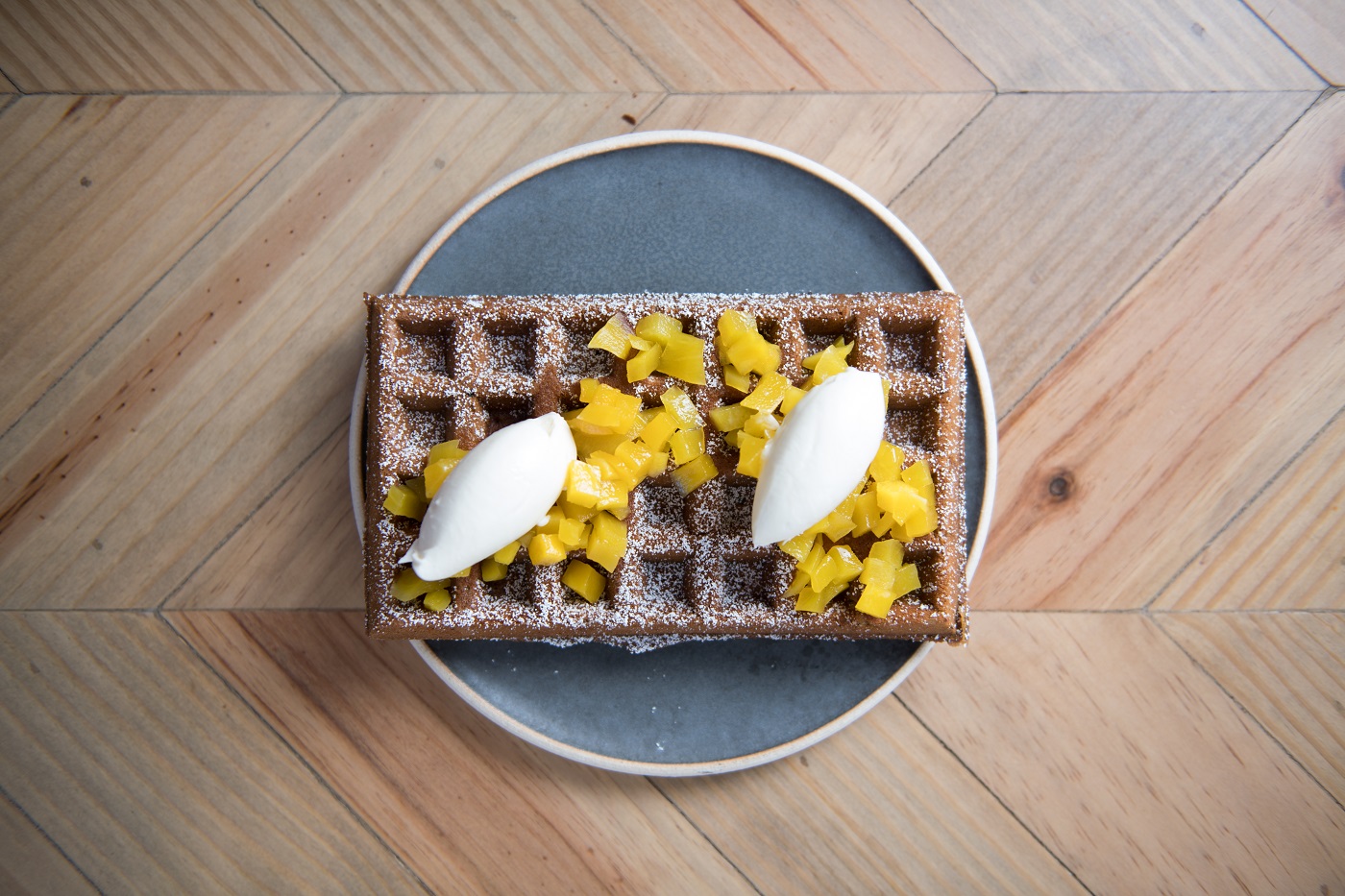
And that process of finding coffee’s roots will factor into your goals for Basal, I’m assuming?
Yeah, I really want to get to place where we can hire more immigrants, connecting them to a commodity that maybe even comes from their own land. I may meet a teenager with a very gut-wrenching story that’ll change my perspective on my life, and lo and behold, we’ve just sourced coffee from their hometown. There’s a lot we’re trying to do here, but my plan for the future is very simple when you boil it down: Provide a great space, make great coffee, and don’t be a jerk. We’re not curing cancer. But there’s space to be romantic. There’s plenty to do.
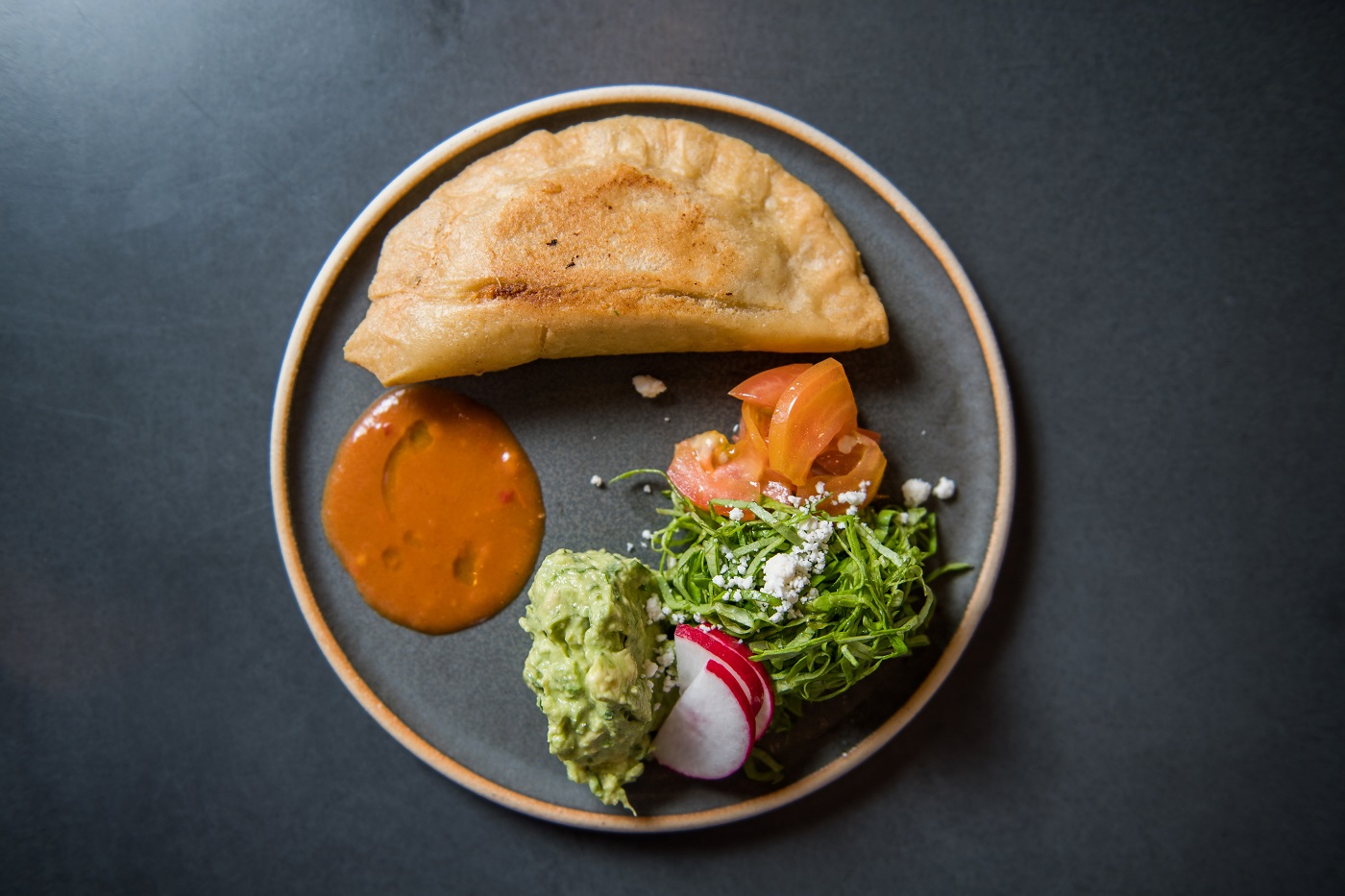
To learn more about Basal Coffee visit them online at basalcoffee.com


